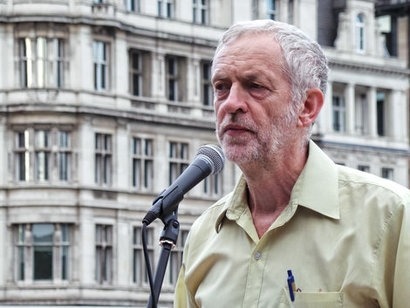
The left-wing candidate for the UK Labour Party leadership election, was announced leader of the party this weekend, as predicted. He is now widely expected to announce the party’s green roles, having already selected rival candidate Andy Burnham MP as Shadow Home Secretary and John McDonnell as Shadow Chancellor. Former Shadow Energy Secretary Caroline Flint has not made any announcements with regard to leaving the front bench in protest against Corbyn’s election as leader, as have Tristram Hunt, Chris Leslie, Yvette Cooper and Liz Kendall. Corbyn therefore may request her to remain in post. The current Shadow Environment Secretary, Maria Eagle, hasn’t ruled out serving in Corbyn’s cabinet either.
Corbyn’s policies on the environment and energy are likely to be defined by his Protecting Our Planet manifesto, which was launched last month. The document describes the Labour movement and the environmental movement as “natural allies” and positions environmental protection at the heart of the new Labour policy framework. It also describes climate change as “a threat to our very existence”, clearly demonstrating that Corbyn takes the matter very seriously. The rest of the document is based on a series of eight fundamental principles which includes Britain taking international leadership on climate change and the push for an end to domination of the energy supply by fossil fuels. It also promises a resource-efficient economy and the creation of 1 million climate jobs; low-carbon and affordable homes; tackling air pollution in cities; protection of eco-systems and wildlife habitats and a healthy and safe environment.
Corbyn intends to ensure a Labour government takes the lead in developing a clean energy economy, promising a radical restructuring of Britain’s energy market which he regards as ‘outdated’. He points to German households sourcing their energy supplies from over 70 different suppliers, whereas UK households are limited to the ‘Big Six’ (British Gas, EDF Energy, nPower, E.ON, Scottish Power and SSE).
A specially created Energy Commission would draft a strategy to reform the energy sector, including adoption of smart energy technology; the introduction of new partners into energy decision making; a review of energy market subsidies; redefinition of the roles played by Ofgem the National Grid and the Competition and Markets Authority; more emphasis on community energy schemes; moving the state into the position of ‘guarantor of last resort’ in which it would have more direct responsibility for back-up generation, the high voltage grid and interconnectors, and finally commitment to binding international climate change targets. Power and duties would be devolved in order to meet these targets, both local and national.
A new ‘green investment bank’ would be created – or the existing GIB reformed. The Tories restrictions on renewable energy infrastructure would be reversed and a new, high-tech, green manufacturing base established. Support for renewable energy would be increased and there would be a new and bold carbon free electricity target for 2030.
Corbyn also pledges to bring down both carbon emissions and the cost of energy with zero carbon homes becoming the norm, not the exception. This will entail new energy efficiency standards on all new buildings and a national home insulation plan aimed at saving each household £250 on their energy bills. Investment in public transport would reduce fares and reduce car use.
Fracking and nuclear do not have a place in the proposed policy framework, based on the damage done to the environment.
The document is certainly visionary. However, Corbyn has been attacked recently on particular proposed policy announcements made prior to the leadership contest. One of these was a proposal to reopen coal mines while concern has also been expressed about a proposal to nationalise the energy companies. City analysts have estimated that the cost of the latter proposal, if enacted, would be at least £185 billion. In relation to coal, Corbyn said that he would only consider this seriously if it was possible to install clean burn technology with carbon filters.
However, in general, the document has been well received by a number of commentators on the British energy sector, such as DeSmog Blog which described the manifesto as indicating Corbyn’s support for “more competition through more diverse energy business models, a clear willingness to make space for smart energy innovation, a call for different approaches to energy system finance, and a platform for more plural approaches to energy governance.”
For additional information:

